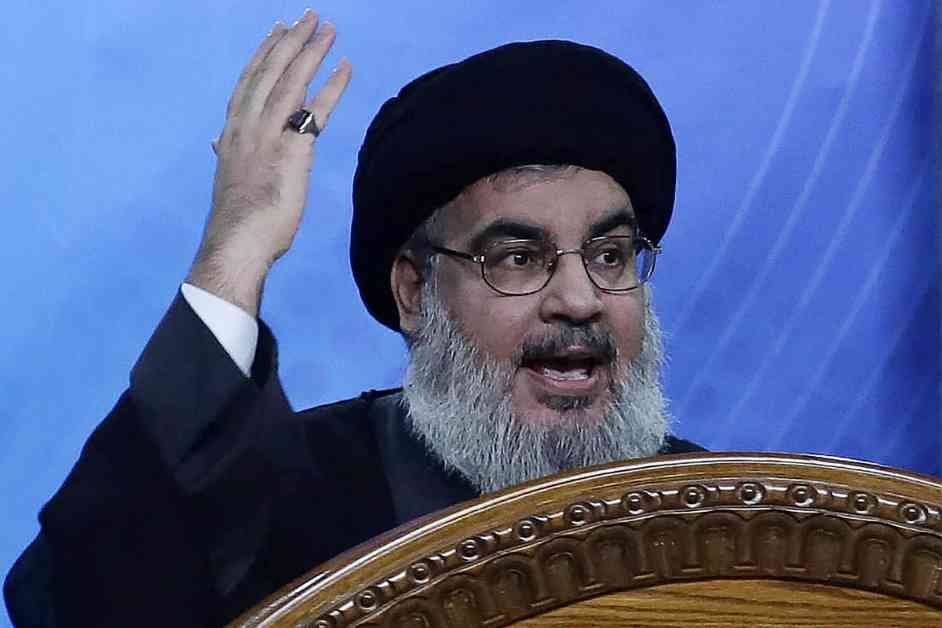Israeli Airstrikes Kill Hezbollah Leader Hassan Nasrallah in Beirut
The recent Israeli airstrikes on Beirut have resulted in the death of Hassan Nasrallah, the leader of Hezbollah. Reports indicate that the Israeli airforce targeted Hezbollah’s central headquarters, which was located underground beneath a residential building in a southern suburb of Beirut. Alongside Nasrallah, Ali Karaki, the commander of Hezbollah’s southern front, is also believed to have been killed in the attacks.
The Israeli military unleashed a massive wave of airstrikes on Beirut in a significant escalation of tensions in the region. The strikes caused significant destruction, with smoke rising from the rubble of buildings in the southern suburbs of the Lebanese capital. The Lebanese health ministry has reported at least six dead and 91 wounded as a result of the attacks, highlighting the devastating impact of the airstrikes.
Intense Israeli Attack on Beirut Sparks Unrest
The targeted airstrikes on Hezbollah’s central headquarters mark one of the most intense attacks by Israel on Beirut in recent times. The strikes were followed by a second wave targeting Hezbollah weapons facilities and command centers in southern Beirut. Israel claims that its military operation was a precise strike aimed at eliminating key Hezbollah figures, including Nasrallah and other high-ranking members of the militant group.
The Israeli military also reported the deaths of Hezbollah’s missile unit commander, Muhammad Ali Ismail, and his deputy in the airstrikes. The attacks have raised concerns about escalating tensions in the region, with Iran’s embassy in Beirut condemning the strikes as a dangerous escalation that warrants appropriate punishment.
Israel’s Justification for the Airstrikes
Israel has defended its actions, stating that the airstrikes were aimed at dismantling Hezbollah’s infrastructure and preventing future attacks on Israeli territory. The Israeli military claims that Hezbollah’s headquarters were embedded under residential buildings in Beirut, highlighting the challenges of targeting militant groups operating within civilian areas.
The airstrikes on Beirut’s Dahieh area, controlled by Hezbollah, have resulted in significant displacement of the local population, with an estimated 100,000 people being forced to flee their homes. The attacks have further exacerbated the humanitarian crisis in Lebanon, which is already grappling with political instability and economic challenges.
As tensions continue to escalate in the region, the international community has called for restraint and dialogue to prevent further violence and bloodshed. The airstrikes on Beirut have reignited fears of a full-scale conflict between Israel and Hezbollah, with both sides vowing to retaliate for the attacks.
In conclusion, the death of Hassan Nasrallah in the Israeli airstrikes on Beirut has sparked unrest and raised concerns about the potential for further escalation in the region. The international community must work towards de-escalation and a peaceful resolution to the conflict to prevent further loss of life and suffering in Lebanon and beyond.












